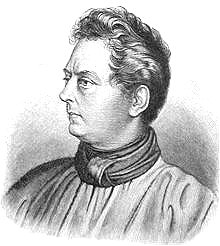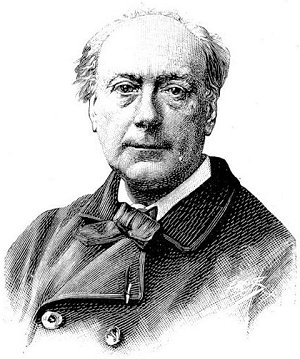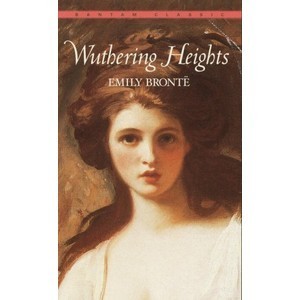Fleurs du Mal Magazine


Or see the index

Afgemat vosje
Ha, wat schudde hij die stomme honden
toch weer makkelijk van zich af. Zijn tong
glanst vochtig als deze bessenstruik.
Hoe trilt de weke flank na van die straffe
draf, de angst nog in zijn buik. Het gezin
liet hij stil in een hol in slaap, de jongen
zacht tegen zijn wijfje aan. Wat verlangt de rekel
naar haar warme lijfje. Maar in avondschemer
houdt het verre meutejanken hem voorlopig in
dicht kreupelhout. Dit is míjn woud, dit zijn mijn
bomen. Blijf van al mijn mooie holle wegen weg
toch, denkt de vos. En snakt naar lange rosse dromen.
Bert Bevers
Verschenen in Die felle…. – Gedichten over vossen, Uitgeverij Gianni, Maastricht, 2005
fleursdumal.nl magazine
More in: Archive A-B, Bevers, Bert

De vergeten winter
Frank Pollet opgedragen, maart 2014
Bekeken door de zeef van geduld heeft tijd
hier geen heft. Zie beenbreek en ogentroost:
de lente gaat droog als naaldhout open.
Alsof ineens de zon zijn gedachten bezingt.
Regen laat zich lastig wegen, kent geen spijt
omdat men treurt om een verloren oogst.
Wijsjes met een vederlicht vibrato lopen
hoog op. Ze lijken wel bergdauw. Er klinkt
bezoeming als door hommels in het hoofd,
de dag tot aan de ogen diep in de lauwe inkt.
Bert Bevers
Ongepubliceerd
fleursdumal.nl magazine
More in: 4SEASONS#Winter, Archive A-B, Bevers, Bert

IJzerhard
Stalen glans op paars blad. Op hoge stelen wiegt
de ijzerhard. Middaguur in onze hortus botanicus
liegt niet: het land van gisteren is toe. Alles bloeit.
Ik hoor kinderen op een nabijgelegen schoolplein
driewerf hoera roepen. Er wordt traag gesproeid
door een man die graag bezorgd lijkt. Soms wil hij
de tuin uit hollen en het op een gillen zetten, maar
zijn bladeren houden niet van geluid. Het ruikt naar
zoethout. Een koolwitje laveert tegen wind in, en zand
wijkt zachtjes voor zaad. Wolkjes zijn licht en de goden
nabij. Laat alle mensen maar weten waar de verhalen
over gaan. Wie een grens trekt heeft een huis.
Bert Bevers
verschenen in Eigen terrein – Gedichten 1998-2013, Uitgeverij WEL, Bergen op Zoom, 2013
fleursdumal.nl magazine
More in: Archive A-B, Bevers, Bert

Passer domesticus
Zijn schroomvol hopen op een kleine holte
onder schuine dakpannen vergt steeds meer
tijd. Hij hunkert naar nabijheid van toonloos
dorre struiken, naar van kreupelhout de lege
grijste. Het vaakst zie ik hem nog in de Zoo.
Daar kronkelt in hoekjes hout dat hij graag
heeft, wordt hij door papegaaien bij het eten
in hun kooien als een kleine broer aanvaard.
Slapen zie ik hem nooit. Om het stoere snaveltje
glanst constant een vogeltjesglimlach. Hij hupt
en roetsjt met graagte in de buurt. Hij wil meer.
Hij wil u wel nabij zijn maar toch niet al te zeer.
Bert Bevers
eerder verschenen in Eigen terrein – Gedichten 1998-2013, Uitgeverij WEL, Bergen op Zoom, 2013
fleursdumal.nl magazine
More in: Archive A-B, Bevers, Bert, MUSEUM OF NATURAL HISTORY - department of ravens & crows, birds of prey, riding a zebra, spring, summer, autumn, winter

P.C. Boutens
(1870-1943)
Afvaart
De maanlicht-overvloeide vloed
Heft ‘t ranke spook van vlotte bom
Boven den zwarten menschendrom
Die vlekt het zilvren zand als roet.
De ketting waar zich ‘t schip aan windt,
Kreunt eenzaam als nacht-wakker kind.
Geen andre klank begint of duurt.
Het koele klikken langs de kiel,
Nu ‘t schip in voller water stuurt,
Reikt niet tot hier. Het slank profiel
Verbreedt onhoorbaar-onverwacht
Zich met der zeilen effen pracht.
Van duistre plecht onzichtbre han
In driemaal-op-en-neder-zwaai
Wuift licht vaarwel aan vriend en land
En heel de manelichte baai.
En donker wuift de kust weêrom
Van rijke vangst en wellekom…
Ik blijf niet langer op mijn plek
In ‘t avondduin. Mijn voet
Voelt onder zich het weifel dek
Van schip te deinen op den vloed.
En met nabije schaduw weet
Ik lichtste licht bekleed.
De breede ronding van de kust
Deinst lamp-bezet, maar doodsch.
Met geen sinjaal durft donkre loods
De stranden roepen uit hun rust…
Waar schuilt de stille school van buit
Waar vol meê keer’ de leêge schuit?
Of wordt in ‘t verre land en voor altoos
Ons wild verlangen schoon en stil? –
De zee is diep en eindeloos
Zooals vertrouwen wil
En wilde toen ‘t aan ‘t veilig strand
Te droomen zat van de’ overkant.
De wind bolt uit het ruime wak.
Het schip helt op zijn breede streek.
Nog even maar is de einder strak
En van kustlichten bleek…
En nu – niets meer dan heem’l en zee…
De zeilen over! Reê!
P.C. Boutens poetry
fleursdumal.nl magazine
More in: Archive A-B, Boutens, P.C.

Clemens Brentano
(1778—1842)
Sie reist mit Schubert zum Achensee
Donnerstag 21. August 1834
Ich ziehe hin, du mußt es leiden
Schon flieht mein Schifflein auf dem See,
Und du stehst stumm, dort bei den Weiden,
Und wiegst dein Herz in bitterm Weh –
Das meine zuckt so hin und wieder,
An deinem hat’s nicht viel geruht
Mein Ruder hebt sich auf und nieder,
Wein’ in die Flut, ich bin dir gut!
Hör’ was zu tun, wenn ich verschwunden
Daß du nicht ganz vertrauern mußt,
Schau an mein Bild in deinen Wunden,
Wieg’ still mein Herz in deiner Brust,
Ich steig’ zum Berg, schleich’ durch die Tale,
Such’ Kühle in des Seees Flut –
Und dir genügt die blaue Schale,
In reiner Glut; ich bin dir gut.
O krankes Herz, dein glühend Lieben,
Glüht mir in jedem Abendrot,
Ist dir der Trost auch nicht geblieben,
Bleibt stets bei mir doch deine Not.
Und in der Abendglocke Tönen
Fühl’ ich bewegt, wie dir zu Mut
Fühl’ deine Tränen, fühl’ dein Sehnen,
In meinem Blut, ich bin dir gut.
O wär’ aus mir, was ich gesungen
Wär’s nicht in meinen Mund gelegt
Dann wär’ ein Quell aus mir entsprungen
Dem Durst, der deine Brust bewegt. –
Der Quell müßt’ bald die Kluft erfüllen,
Dein Ach und Weh und deine Glut
Könnt’ ich am Achensee dann stillen!
Ach werde gut, ich bin dir gut!
Clemens Brentano poetry
fleursdumal.nl magazine
More in: Archive A-B, CLASSIC POETRY

Dit hart
Dit hart is een kerk
waar je heen kunt met vragen
een plaats waar eenzaamheid
van tijd tot tijd minder wordt of slijt
dit hart is een hutje op de hei voor jou alleen
dit hart houdt een sportieve uitdaging in
het daagt liefde uit tot zomerse capriolen
dit hart zwelt en slinkt in iedere beweging
het pinkt soms ontroerd een traan weg
dit hart heeft een kamer waar je rouwen kunt
de muren bestand tegen boosheid
de ramen ontkennen het plafond huilt
als herinneringen niet overgaan
dit hart is een bed om in lief te hebben
oogopslag gemoedstoestand geheimgehouden
als strelingen over verborgen verleden
vragende ogen verzachtende omstandigheden
is smelten als was
dit hart loopt stilaan over van liefde
het zingt de melodie van het universum
wacht tot de wereld gaat draaien.
Martin Beversluis
fleursdumal.nl magazine
More in: Archive A-B, Beversluis, Martin

Théodore de BANVILLE
(1823-1891)
La Lune
Avec ses caprices, la Lune
Est comme une frivole amante ;
Elle sourit et se lamente,
Et vous fuit et vous importune.
La nuit, suivez-la sur la dune,
Elle vous raille et vous tourmente ;
Avec ses caprices, la Lune
Est comme une frivole amante.
Et souvent elle se met une
Nuée en manière de mante ;
Elle est absurde, elle est charmante ;
Il faut adorer sans rancune,
Avec ses caprices, la Lune
Théodore de Banville poetry
fleursdumal.nl magazine
More in: Archive A-B, CLASSIC POETRY

Robert Burns
(1759–1796)
A Fond Kiss
A fond kiss, and then we sever;
A farewell, and then forever!
Deep in heart-wrung tears I’ll pledge thee,
Warring sighs and groans I’ll wage thee.
Who shall say that Fortune grieves him,
While the star of hope she leaves him?
Me, nae cheerfu’ twinkle lights me;
Dark despair around benights me.
I’ll ne’er blame my partial fancy,
Nothing could resist my Nancy;
But to see her was to love her;
Love but her, and love forever.
Had we never lov’d say kindly,
Had we never lov’d say blindly,
Never met–or never parted–
We had ne’er been broken-hearted.
Fare thee well, thou first and fairest!
Fare thee well, thou best and dearest!
Thine be like a joy and treasure,
Peace. enjoyment, love, and pleasure!
A fond kiss, and then we sever;
A farewell, alas, forever!
Deep in heart-wrung tears I’ll pledge thee,
Warring sighs and groans I’ll wage thee!
Robert Burns poetry
fleursdumal.nl magazine
More in: Archive A-B, Burns, Robert

Emily Bronte
(1818-1848)
No Coward Soul Is Mine
No coward soul is mine,
No trembler in the world’s storm-troubled sphere:
I see Heaven’s glories shine,
And faith shines equal, arming me from fear.
O God within my breast,
Almighty, ever-present Deity!
Life–that in me has rest,
As I–undying Life–have Power in Thee!
Vain are the thousand creeds
That move men’s hearts: unutterably vain;
Worthless as withered weeds,
Or idlest froth amid the boundless main,
To waken doubt in one
Holding so fast by thine infinity;
So surely anchored on
The steadfast rock of immortality.
With wide-embracing love
Thy spirit animates eternal years,
Pervades and broods above,
Changes, sustains, dissolves, creates, and rears.
Though earth and man were gone,
And suns and universes ceased to be,
And Thou wert left alone,
Every existence would exist in Thee.
There is not room for Death,
Nor atom that his might could render void:
Thou–Thou art Being and Breath,
And what Thou art may never be destroyed.
Emily Jane Brontë poetry
fleursdumal.nl magazine
More in: Anne, Emily & Charlotte Brontë, Archive A-B, Brontë, Anne, Emily & Charlotte
![]()
La double vie de Véronique
Bij de film van Krysztof Kieslowski
Een ogenblik pal: het lijkt een jaar te duren.
Zij schroeit zich aan haar eigen beeld – zonder
spiegel, lensloos zelfs. Ziel vanwege onvermoede
dubbelgangster tot in eeuwigheid verscheurd.
Daar zit ze uit het venster van een trein te turen:
het vertekent, maakt strakke vormen ronder
en haar voor nog eens zo’n herkenning op haar hoede.
Zij weet zichzelf in duplo nu. Avondval verkleurt
de stad, werpt vreemde schaduwen op muren.
Ach Veronika, wat ga je mooi in zang ten onder.
Bert Bevers
fleursdumal.nl magazine
More in: Archive A-B, Bevers, Bert
![]()
Wetenschap
Ik stuur een lantaarnpaal de stroomrekening
swaffel tegen schrikdraad
en zet zangvogels vast wegens spionage
in meesmuilend doorluchtige taal vertel ik u
dat u een fout hebt gemaakt
en dat dat licht aan het eind van de tunnel
slechts resultaat is van het sterven van een cel
graag schroef ik voor uw ogen
het wonder uit elkaar
tot er wetenschap overblijft
daarna kweek ik een hamburger uit uw gestorven vlees
-met ui en een flinke klodder saus op een broodje van de hema-
aan mijn eeltkamertafel zal ik u met smaak eten.
Martin Beversluis
fleursdumal.nl magazine
More in: Archive A-B, Beversluis, Martin
Thank you for reading Fleurs du Mal - magazine for art & literature